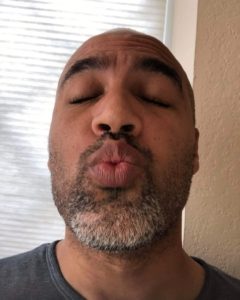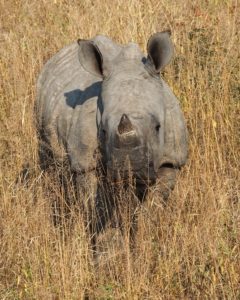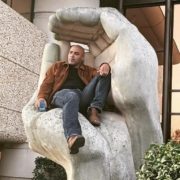Peter Harper – Part Three: Reveal and Reciprocation
Look for Peter Harper's new releases every two weeks for the next year!
this is where we left it…
 Where in the music creation process is that tension, where you don’t know if your calculations are gonna come out the way you wanted?
Where in the music creation process is that tension, where you don’t know if your calculations are gonna come out the way you wanted?
PH: There’s a couple places where that happens. It’s not exactly the same, because there’s not one reveal in music; there’s multiple reveals. You can have an idea in your head and you can sit down, and there’s the reveal of writing the song. Does it come out? Does what you hear in here (he points to his head with both hands) what translates (he pantomimes playing guitar) to here?
Me: it’s the same with words. Sometimes you write them, and the poem’s going, “No. That’s not what I meant.”
PH: “We’re not gonna do that.” So there’s one moment, where you either get what you set out for, or you don’t get it but you get something else. Or maybe you get nothing that day and you gotta start again the next day. But that’s one moment where that reveal happens.
Then there’s the next moment, let’s say you get a song, whether it’s the one you wanted or not the one you wanted or whatever, you wind up with something; then you get that into the studio. When it’s in the studio, you’re bringing in other musicians, you’re bringing in multiple layers, you’re bringing in a larger sound, assuming that you’re not recording it just as a solo acoustic track, which also is its own reveal, right? You still don’t know…the microphone, and the translation of the microphone, the equipment you’re going into and how that equipment inputs and outputs your voice. That’s another reveal.
After the studio, there’s the reveal of you put it out into the world. And now, there’s the song that you think you wrote, and then there’s the song that you actually wrote. And sometimes those are not the same thing. And when a community of people come together and hear the song, they’re like, “That’s profound about this subject.” And you’re going, “I hadn’t really thought about it in relation to that subject, but now that you mention it…it couldn’t have been anything other than that.”
Me, internally: ( which is why I don’t like to explain what I was thinking when I made___________.)
PH: So that is its own reveal, its own expression and experience out of the fire. So I think that with music there are multiple moments where that happens in different ways. And then, actually there’s one more, where one year, five years, ten years later, you go back and listen to the song and say, “It’s not done.”
Me, internally: withering
PH: And now I’ve gotta add these other lyrics or change this other part. Could you have seen that in the moment you wrote it? NO. It takes having lived with it for a decade, having performed it, having other people sing it back at you. All of these moments and they all add up to this space where you go: “Oh. Yeah. That’s…it’s missing something.”
Me: that does happen in poetry all the damn time.
PH: Oh yeah. I’ll do that literally in 24 hours. I’ll write something, like a song, a poem, whatever, and you have that feeling like “WHOA, that was a really great experience to be able to express that…” And then I’ll go to sleep, and I’ll wake up super-excited to re-read this, because I was really happy with how it came off, and I’ll be re-reading it and going, “Get that…get that outta here! That’s not…nope…scratch scratch…” new notes…”Okay, now it’s done.”
Me: So to have people reading it, singing it back to you…

photo courtesy of Ken Holme
PH: It’s a profound experience. It’s a wild ride. I’ll never forget I was in the south of France playing this festival called RhinoféRock, and there’s 3000 people, they’re right pushed up against the stage, they’re having a great time. I played this song, “For Love” and…they all knew it. And they were all singing it right back at me. I didn’t know they knew it. I had no idea they knew it. I’d never been to this space before; I’d never been to this town before; I had no clue and sure enough they were singing the whole thing. How did that happen? I stopped the song. “You know this. NOW we’re talking! YES! Let’s do this together!” Now I try to engage the audience all the time and make sure the audience is a part of the experience.
The title “Artist” in and of itself is narcissistic. Right? Like I’m gonna make something and you’re gonna appreciate it. Anyone who makes art in a solitary space and never shares it is a pure artist without narcissism. The moment that you die and leave people all this stuff, you left it for them to discover, so that’s narcissistic. So like if you don’t destroy everything you’ve made…there’s an element of narcissism built into being an artist. You have to promote what you create. You have to share it. And part of being an artist is sharing it and having feedback, having that back and forth between the listener and the performer. I recognize that and I don’t try to hide from that, but I also don’t try to be consumed by that.
When you get out on the road, people tell you all the time you’ve changed their life, you’re magic, you’re special, you’re incredible, you’re amazing. You start to think you’re magic and special and incredible and amazing, when really you’re just taking a dump just like everybody else, right? For me, it’s important to recognize my own narcissism, and the existence of that in my own life, but also know that if that’s the focus, I’m wasting my breath. That’s not what makes the world a better place.
When performing, I’m really big on getting the audience involved. I don’t feel like people just showed up to see me strum this guitar and hear the sound of my voice. They want to dance, they want to sing, they want to be the show; they’re living vicariously through me in this moment. They’ve come to see a performer be somebody larger than life on a stage that’s above them that sings over them and onto them, right? So in that space if you make them part of the show, then they’re no longer living vicariously but experientially. In that moment, again coming back to this word ‘magic’ you’re creating something magical. You’re opening yourself up to say, “I’m human, too – we’re all one – and this show, this concert, this experience isn’t great without YOU. And I’m gonna do this thing that I do, but if you don’t participate, it’s not gonna be as fun.”
And so everybody else is like “He needs me!” They’re in, and they’re singing and they’re dancing, and then when they leave, they’ve been a part of something. In that moment, in that very brief moment, a few hours, you’re a tribe. You’re a community. You’re sharing a vocabulary. No longer me dictating to you, It’s not a monologue anymore, it’s a dialogue. That’s an important part of being an artist, being a performer, making music…it’s also an important part of that reveal, right?
Me: That’s something that the visual art doesn’t do, because the people can be there without you, and maintain the wall between that separates art from me…
PH: Right. With the sculpture that was something that really bothered me. I built all my own pedestals, and built into the pedestal was a – I don’t know the technical term for it, Lazy Susan? The turn-whatever-thing – that was on the base of the pedestal, and the sculpture would sit on top of that. And then I’d put the sculpture against a wall or in the corner, so if you wanted to see the other side of it, you had to grab it and turn it. so if you didn’t touch it, you didn’t see it all. And if you didn’t see it all, you missed part of it. I made it with my hands; if you want to understand how I made it, what I was making, what I was feeling & thinking when I made it, you gotta touch it.
Me: is anything like that available for the public now?
PH: No. Nothing out in the world at this moment outside of belt buckles.
Me: Belt Buckles?
PH: Yes. I make belt buckles.
Me: Oh, cool!
PH: Yeah. I bring a lot of my sculptural and artistic talents to create my merchandise. Because I have this idea that…I’m so grateful when people come to shows and participate. So every single thing that I make and sell, I want it to be art, so that at some point, if anything ever blows up or if anybody gets to this moment where it’s big, bigger than big…they have something now, because they supported me early, they have something of value that will recoup their investment tenfold, right? That’s a big thing for me. I hand screen-print t-shirts; I do belt buckles; I hand screen-print posters, all by my hand, my creation; for my album Break the Cycle, I hand-drew every single album cover…

Me: Yes. I’m a little mad about that, that you thought of it first. My partner in crime and I eventually will do something, and we’ll have to get over that moment and just make our own…
PH: It was so good. And what I loved most about that, was I’d watch people – I’d bring like 20 to a show – and I’d watch people crawl through each design and then pick out the one that spoke to them. Every single cover was unique. There was I think 3 that I screen-printed, maybe 4…even those were a little bit different. Seeing people choose from those was interesting. But again, creating something that holds value and increases in value over time because of its uniquity and its rarity is something I’m hoping I can give back to people who’ve given to be because they supported me…at an early stage, when I also have time to do that, and availability.
Me: So it’s investment in a community.
PH: yeah, it’s investment in a community that has invested in me. *I* have a song that I want to write, that I think is good; I’m gonna stand on stage, I’m gonna sing to you, you’re gonna pay for a ticket to come. See. Me. That’s a lot of me, me, me, me, me, right? But for me, I’m so grateful for that. I’m so appreciative of the people that have found me and love what I do. You’ve done this for me, all of it: you’ve shown up, you’ve listened, you’ve sang, you’ve purchased. I get it, that every person in the audience gets their own experience, but I don’t want to stop there. My return is also: you’ve invested money in me and my career, and in investing I hope that there’s a return on that investment because what you’ve purchased is literally a one of fifty or whatever. Being able to do that and give back is cool. And it’s been fun to watch things that crop up on eBay from time to time. People asking if there’s still one of those available…No. There isn’t any more.
Me: and that puts pressure on you as a creator, which creators need…”No, I’m completely out of anything original right now. I have to come up with something new.”
PH: That’s right. That’s absolutely right.
PH: Starting in May, I will be releasing a song every other week for a year. It’s very exciting. The album is called We’re Comin’ titled after the track you and the other 51 people helped create!
So there’s math – equaling one person per week. My little science-poet heart loves this so much.
Comin’ For You, Peter Harper’s new album, will be 26 tracks, a mix of covers and original songs. Get a sneak preview HERE. Follow Peter Harper on Instagram, Twitter, and Facebook for the latest updates.
Peter Harper – Part Three: Reveal and Reciprocation
Look for Peter Harper's new releases every two weeks for the next year!













